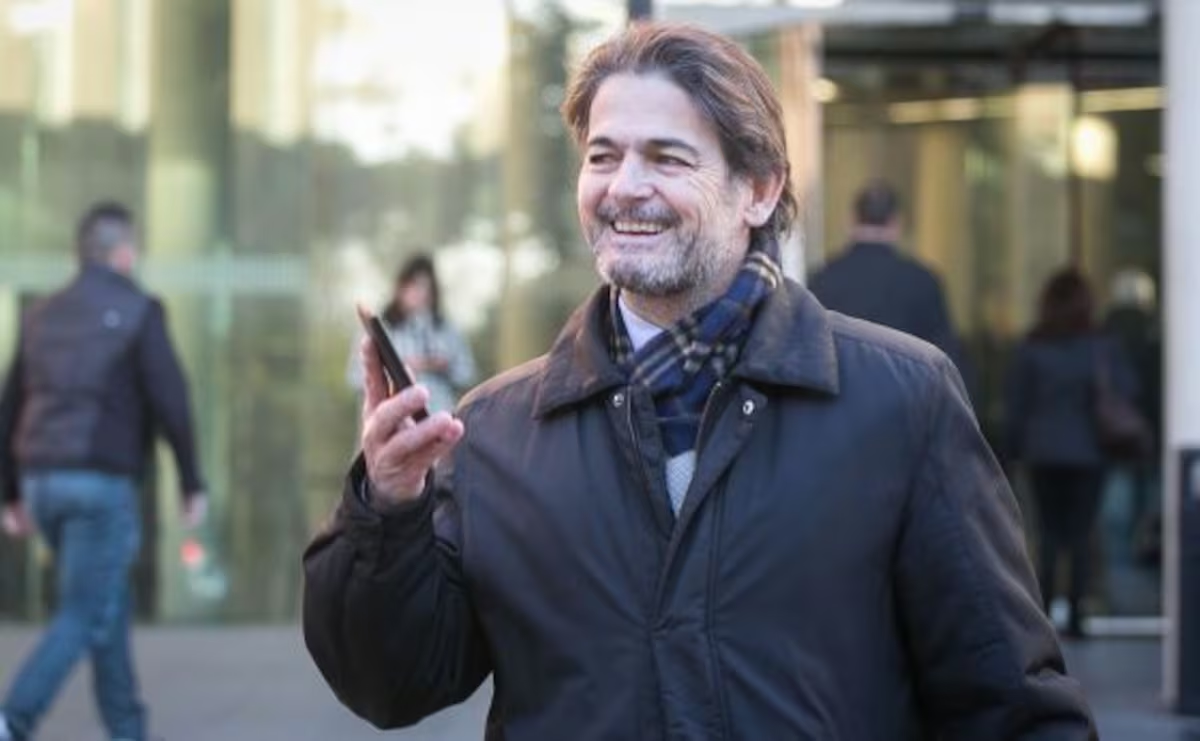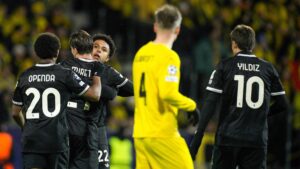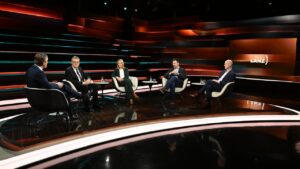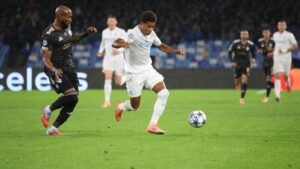
Oriol Pujol Ferrusola claimed this Thursday that his father, the former Catalan president Jordi Pujol, 95, “wants” to face the trial for the hidden assets in Andorra that the family will face starting November 24 at the National Court. “My father wants to stand trial,” said one of the former president’s seven sons (the only one who continued his political career). Despite his cognitive impairment, Pujol is “sufficiently lucid.” “He is not a useless man or to be disqualified,” he said.
In an interview with the station Radio CatalunyaFor the first time in more than a decade, the former secretary general of the defunct Convergència Democratica (CDC) spoke about his father’s health, which is at the center of pre-trial discussions. The family has sent three medical reports on the former president’s physical and mental health so that the National Court’s forensic clinic can assess whether he is fit to stand trial, this newspaper reported. The court has already ordered a medical examiner to subject him to a thorough examination in Barcelona and prepare a sentence.
Him former president He did not ask to avoid the trial, but asked to be absent from the over 40 hearings which, over the course of six months, will include the oral hearing of The Pujol case. His lawyers have asked that, when the time comes, he testify via videoconference and be exempt from traveling to Madrid in person. Oriol Pujol confirmed that his father wants to go to trial, but remotely, more for physical problems than mental ones. “My father’s body is punished, weak, fragile, in pain… The body can’t stand to go, it can be quite deadly… It’s an expression, but it’s also a bit literal,” he said.
Pujol and his family risk being tried for crimes of criminal organization and money laundering. According to the thesis of the Prosecutor’s Office, the older brother, Jordi Pujol Ferrusola, would have collected commissions in exchange for the assignment of public works during Pujol’s long period (1980-2003) at the helm of the Government of the Generalitat. Oriol Pujol is convinced that both the charge of criminal organization and the rest will be dropped. “I dare say the trial will go well. It can’t help but go well, because the evidence is very weak.” According to him, the social and political context also has an impact: “I want to think that the animosity towards my father should take on another aspect; whoever wanted to harm him has already done so”.
The “patriotic police”
In July 2014, Jordi Pujol confessed that his family had hidden a fortune from the Andorra Treasury. It was the starting signal for a process which, as Oriol Pujol denounced on public radio, was “plagued by interference, anomalies and oddities”. He who was considered for many years a possible successor to president Artur Mas denounced in particular the maneuvers of the so-called patriotic police to persecute the family. And he cited as an example the declaration of Victoria Álvarez, the ex-girlfriend of his firstborn, who “has been receiving confidential funds for almost ten years”. Álvarez, who spoke for the first time about his eldest son’s transfer of money between Catalonia and Andorra, will not even testify at the trial.
Pujol explained that he never touched a euro of his share in the Andorran legacy and that he got rid of it in 2009, when his political career was on the rise. “It was something that my grandfather had articulated, but it had a shameful meaning. It has been present in our family for many years, partly as a slab,” he said of the public statement written by the former Catalan president in July 2014.
That confession meant the collapse of Pujol’s public image, which however has been rehabilitated in recent years. The president of the Generalitat, Salvador Illa, received Pujol at the Palau. When asked about that visit, the former Convergència leader praised the fact that Illa acted “with a high sense of the institution”. “One thing happens, and I think Illa realizes it, and that is that the Catalonia that was doing well, in part, was Pujol’s Catalonia. Maybe there is a certain desire to recover it.” Oriol Pujol believes that, despite the initial disappointment with Andorra’s results, the majority of Catalans “ended up understanding the move, and the move was Pujol’s head”.





